第63章
Looking back, I realise that what I have written about Charles Strickland must seem very unsatisfactory.I have given incidents that came to my knowledge, but they remain obscure because I do not know the reasons that led to them.The strangest, Strickland's determination to become a painter, seems to be arbitrary; and though it must have had causes in the circumstances of his life, I am ignorant of them.From his own conversation I was able to glean nothing.If I were writing a novel, rather than narrating such facts as I know of a curious personality, I should have invented much to account for this change of heart.I think I should have shown a strong vocation in boyhood, crushed by the will of his father or sacrificed to the necessity of earning a living; I should have pictured him impatient of the restraints of life; and in the struggle between his passion for art and the duties of his station I could have aroused sympathy for him.I should so have made him a more imposing figure.Perhaps it would have been possible to see in him a new Prometheus.There was here, maybe, the opportunity for a modern version of the hero who for the good of mankind exposes himself to the agonies of the damned.It is always a moving subject.
On the other hand, I might have found his motives in the influence of the married relation.There are a dozen ways in which this might be managed.A latent gift might reveal itself on acquaintance with the painters and writers whose society his wife sought; or domestic incompatability might turn him upon himself; a love affair might fan into bright flame a fire which I could have shown smouldering dimly in his heart.I think then I should have drawn Mrs.Strickland quite differently.I should have abandoned the facts and made her a nagging, tiresome woman, or else a bigoted one with no sympathy for the claims of the spirit.I should have made Strickland's marriage a long torment from which escape was the only possible issue.I think I should have emphasised his patience with the unsuitable mate, and the compassion which made him unwilling to throw off the yoke that oppressed him.I should certainly have eliminated the children.
An effective story might also have been made by bringing him into contact with some old painter whom the pressure of want or the desire for commercial success had made false to the genius of his youth, and who, seeing in Strickland the possibilities which himself had wasted, influenced him to forsake all and follow the divine tyranny of art.I think there would have been something ironic in the picture of the successful old man, rich and honoured, living in another the life which he, though knowing it was the better part, had not had the strength to pursue.
The facts are much duller.Strickland, a boy fresh from school, went into a broker's office without any feeling of distaste.Until he married he led the ordinary life of his fellows, gambling mildly on the Exchange, interested to the extent of a sovereign or two on the result of the Derby or the Oxford and Cambridge Race.I think he boxed a little in his spare time.On his chimney-piece he had photographs of Mrs.Langtry and Mary Anderson.He read and the .He went to dances in Hampstead.
It matters less that for so long I should have lost sight of him.The years during which he was struggling to acquire proficiency in a difficult art were monotonous, and I do not know that there was anything significant in the shifts to which he was put to earn enough money to keep him.An account of them would be an account of the things he had seen happen to other people.I do not think they had any effect on his own character.He must have acquired experiences which would form abundant material for a picaresque novel of modern Paris, but he remained aloof, and judging from his conversation there was nothing in those years that had made a particular impression on him.Perhaps when he went to Paris he was too old to fall a victim to the glamour of his environment.Strange as it may seem, he always appeared to me not only practical, but immensely matter-of-fact.I suppose his life during this period was romantic, but he certainly saw no romance in it.It may be that in order to realise the romance of life you must have something of the actor in you; and, capable of standing outside yourself, you must be able to watch your actions with an interest at once detached and absorbed.But no one was more single-minded than Strickland.I never knew anyone who was lessself-conscious.But it is unfortunate that I can give no description of the arduous steps by which he reached such mastery over his art as he ever acquired; for if I could show him undaunted by failure, by an unceasing effort of courage holding despair at bay, doggedly persistent in the face of self-doubt, which is the artist's bitterest enemy, I might excite some sympathy for a personality which, I am all too conscious, must appear singularly devoid of charm.But I have nothing to go on.I never once saw Strickland at work, nor do I know that anyone else did.He kept the secret of his struggles to himself.If in the loneliness of his studio he wrestled desperately with the Angel of the Lord he never allowed a soul to divine his anguish.